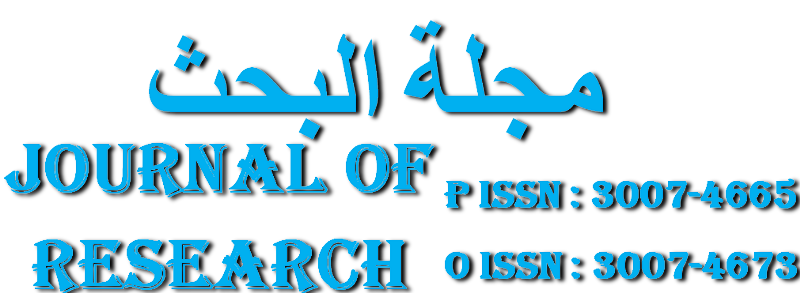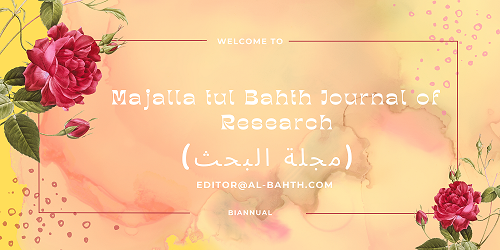
Name of Journal
Journal of Research
(مجلة البحث)
Journal Frequency: 2 Issues Per Year (Bi Annual)
ISSN Online: 3007-4673
ISSN Print: 3007-4665
Language: Bi Language
Name of Publisher: Professor Dr Muhammad Saleem
Publisher Address: ROYAL INSTITUTE FOR RESEARCH AND EDUCATIONAL
DEVELOPMENT (SMC-PRIVATE) LIMITED - House # 200, Insaf City, Pattoki,
Pattoki Pattoki, KASUR, Punjab





